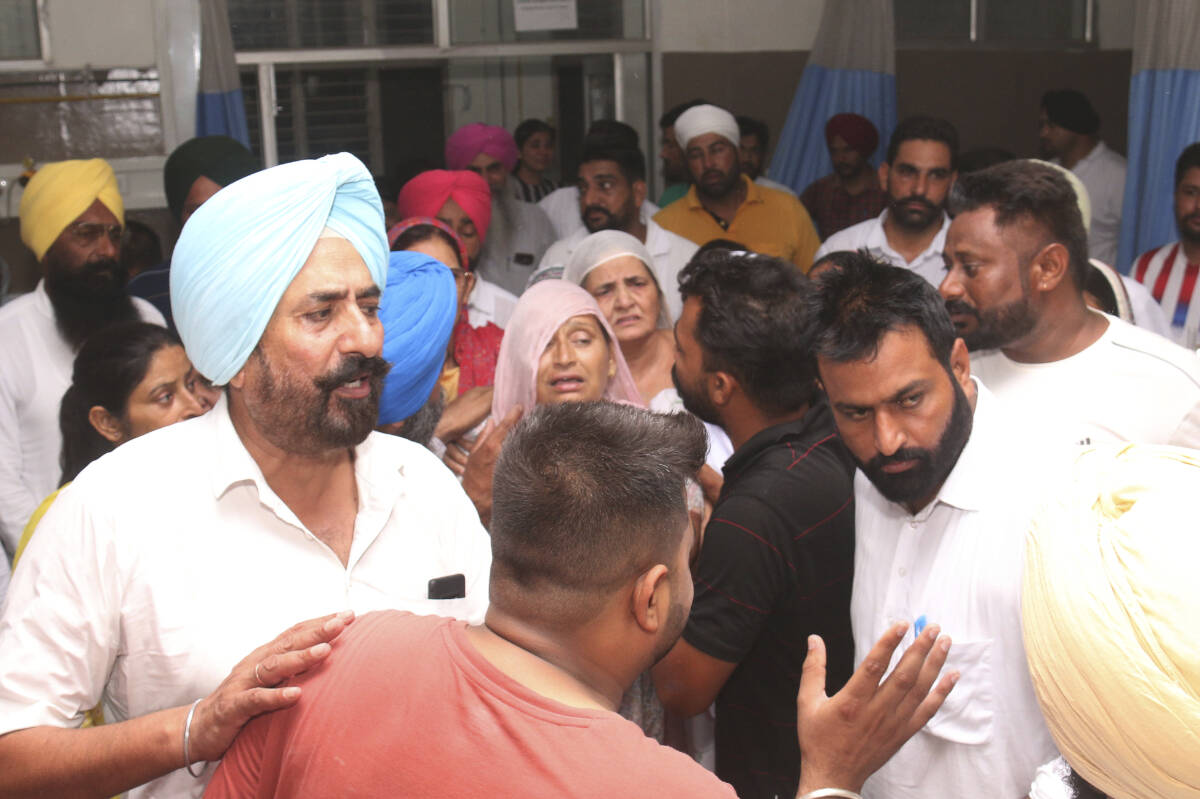Shub Karman was out for a recent walk in Calgary, when he passed a car full of kids singing along to the music of his favourite Punjabi rapper.
“The car was buzzing, the bass was on and there were all sorts of people sitting inside who were jamming to Sidhu Moose Wala,” said Karman, a 30-year-old Punjabi-Canadian.
“When I approached the car, I learned they werepeople who had no idea about Punjabi culture (and) what the song means for our culture.
“But they were vibing to it.
“I felt a sense of pride.”
Since then, Karman said he has also heard Moose Wala’s catchy beats and English and Punjabi lyrics in nightclubs and bars on the Prairies.
He said Moose Wala’s legacy has only grown since he was shot dead in an ambush in India on May 29, 2022. He was 28.
Fans worldwide are expected to remember and honour Moose Wala – for his music and politics — on the second anniversary of his death on Wednesday.
“At first, he was India’s response to one of the most dominant musical forms — hip hop — and it was something very new. He was raw. He was authentic,” Karman said.
“After his death, he and his music are considered revolutionary among the Punjabi youth because people all over the world, and those not from the Punjabi community, are now singing his songs. They are learning about Punjabi culture.”
Calgarian Preet Sidhu said the music helps her family stay connected to their heritage.
“(Moose Wala) raps about spirituality. He was advocating for respecting your parents and elders, hard work, courage, having a turban on and for speaking up for the things that matter,” said the 36-year-old mother of two boys.
“He was bigger than just music.
“He was a way of being.”
Moose Wala, born Shubhdeep Singh Sidhu, first garnered recognition when he released his song “So High” in 2017 as a 24-year-old international student in Brampton, Ont.
His appeal grew not only in Canada but also in the United Kingdom, with its large Punjabi diaspora.
In 2018, his debut album made it to the Billboard Canadian Albums chart. He eventually charted 13 songs on the Canadian Hot 100, some of them after his death.
Moose Wala’s popularity paved a path for a new generation of Punjabi artists in Canada, fusing traditional Punjabi folk tunes and the language with hip-hop and trap beats, including AP Dhillon. Dhillon made history at last year’s Juno Awards with its first Punjabi musical performance.
On May 29, 2022, Moose Wala was shot while driving his car in northern India’s Punjab state. His car was cut off by two other vehicles, and he was killed in a hail of bullets.
Indian police blamed the killing on an inter-gang rivalry.
A day earlier, media reported the Punjab government was ending security for more than 400 people, including Moose Wala, in a bid to clamp down on VIP culture.
A year earlier, Moose Wala had jumped into politics. He joined India’s Congress Party and unsuccessfully ran in the state’s assembly elections, courting controversy along the way.
“He was criticized in the beginning for promoting gun violence,” Karman said.
“Then he evolved. He began bringing in the history of Punjab into his music, the core issues affecting Punjab.” Karman said Moose Wala fought for farmers’ rights and denounced how they were forced to sell crops to the government at a regulated price.
“His critique of the government struck a chord with everyone,” Karman said.
That’s also why some supporters argue his death may be politically motivated, Karman added.
Rishi Nagar, who hosts a daily Punjabi radio show in Calgary, said fans still want justice for Moose Wala, but Wednesday will be about remembering him mainly as an artist.
“Most of our music programs will be dedicated to his memories,” he said.
“Fans are also holding a candlelight vigil at a local park. He has touched the pulse of the youth. He energized them.
“People love his songs.”
READ ALSO: B.C. artists taking centre stage as Punjabi music takes off
— With files from David Friend in Toronto and The Associated Press
Fakiha Baig, The Canadian Press

